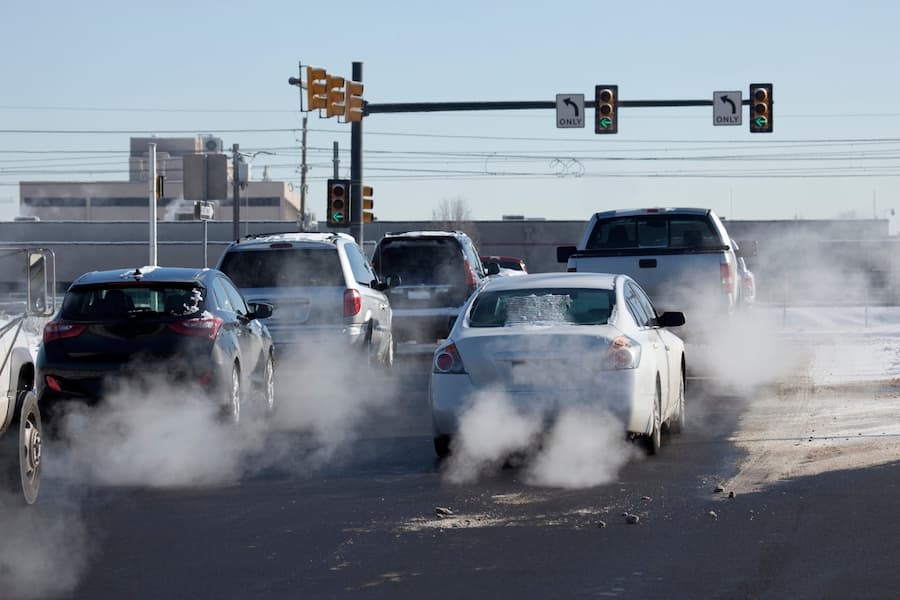Vehicle Emissions – The number of cars in the UK exceeds 30 million. As each one emits carbon dioxide towards the atmosphere when it is determined, the quantity of CO2 generated on our roadways builds up rapidly. Continue reading to see how you can contribute to the environment by learning how to lower the amount of greenhouse gases your car produces. Mk4 golf exhaust is the best exhaust for your vehicle for better performance and to have a higher quality material used to make the exhaust.
Why Is Reducing Vehicle Emissions Required?
Let’s take a moment to talk about the significance of emissions reduction before moving on to the ten suggestions. This needs to be done if the problem of global warming is to be solved and air quality improved, especially about vehicle emissions. Shiny objects Vehicles are the main cause of air pollution and greenhouse emissions mainly those that will be fueled by fossil fuels. Transport has been reported to be one of the global sector’s leading culprits of greenhouse gas emissions.
Apply A Cleaning Solution
The deposits can be removed and the vehicle emissions can be reduced by adding an additive for cleaning the fuel system. It makes sense to use higher-quality gasoline that has these chemical compounds already in it. To keep the combustion chamber engine fuel cleaner operating at peak efficiency, use it every three months.
Reduce Your Driving
- Emissions decrease by driving fewer miles.
- Use these suggestions to cut down on the amount of time that you spend driving:
- When you can, go for a bike ride or a walk.
- If your town or city offers bike-share programs, take advantage of them.
- When you can, use public transportation.
- Join a carpool with pals rather than go it alone.
- Make use of ride-sharing programs.
To get the most out of your travels and “trip chain,” plan beforehand. Make all of your necessary visits at once if your nearest supermarket is close to other locations. If your job permits, work from home on occasion.
Track Your Acceleration And Speed
Emissions as well as fuel consumption can both rise with rapid acceleration and high speeds. High speeds translate into high fuel usage. Your car may require as much as 25 per cent more fuel to travel 110 km/h compared to 90 km/h. When driving at high speeds, keeping a safe distance from the vehicle in front of you will help you avoid having to brake suddenly and then pick up speed again since you will be able to see when light conditions will change or other vehicles will be turning.
Cut Down On Fuel Lost While Idling
By turning off the engine anytime your automobile is idle, you may reduce fuel waste. You are going to conserve more fuel by turning off the engine, even for a brief duration, than you will from the fuel surge that occurs when you restart the combustion process. Some modern cars come equipped with an auto-stop feature, which turns off the engine whenever the vehicle stops and eliminates the need for engine power. There is very little overall wear and tear resulting from this approach.
Make Sure The Tire Pressure Is Right
The performance of your car can be significantly affected by the tyre pressure. Underinflated tyres require more effort and fuel to turn, which increases engine efficiency. It’s believed that a 20% underinflated tyre might also result in a 20% decrease in efficiency.
To make sure your car is operating properly, you should inflate your tyres as needed every few weeks. You can check your car’s handbook or, if one is there, look for the pressure details under a sticker outside the door on the passenger side to find out what quantity of air you should put in your tyres.
Control Your Air Conditioning Unit
Utilizing the air conditioner system increases engine strain and hence increases emissions. A couple of kilometres before you get to your destination, think about shutting off the air conditioner. The ventilation system will still circulate chilly air. To avoid costly repairs, run the air conditioner at least every other day. But instead of driving alongside the windows down, you might be able to save more fuel by using the temperature control system in your car. This is because open windows increase drag, which raises emissions and fuel consumption.
Replace The Oil
The lifeblood of your car is the engine oil that besides lubricating it, has the function of cleaning it, cooling it and protecting it from wearing out. For it to offer the best performance out of the car it is used on. It has to be replaced frequently. Operations and maintenance intervals may be turned in the user’s manual of the specific vehicle. In between each of the services, be certain to examine the levels of the oil in the engine and to add more oil if necessary and in the correct grade as recommended by the manufacturer.
Final Words
The following ten tips can reduce vehicle emissions from your car and are worth to be put into practice. Apart from benefiting the environment, the use, of cleaning products, the choice of better fuels, regular service, and conservation of fuel through more efficient driving techniques will increase the performance and fuel economy of your car. Visit Global Magazine Pulse for more informative blogs.
